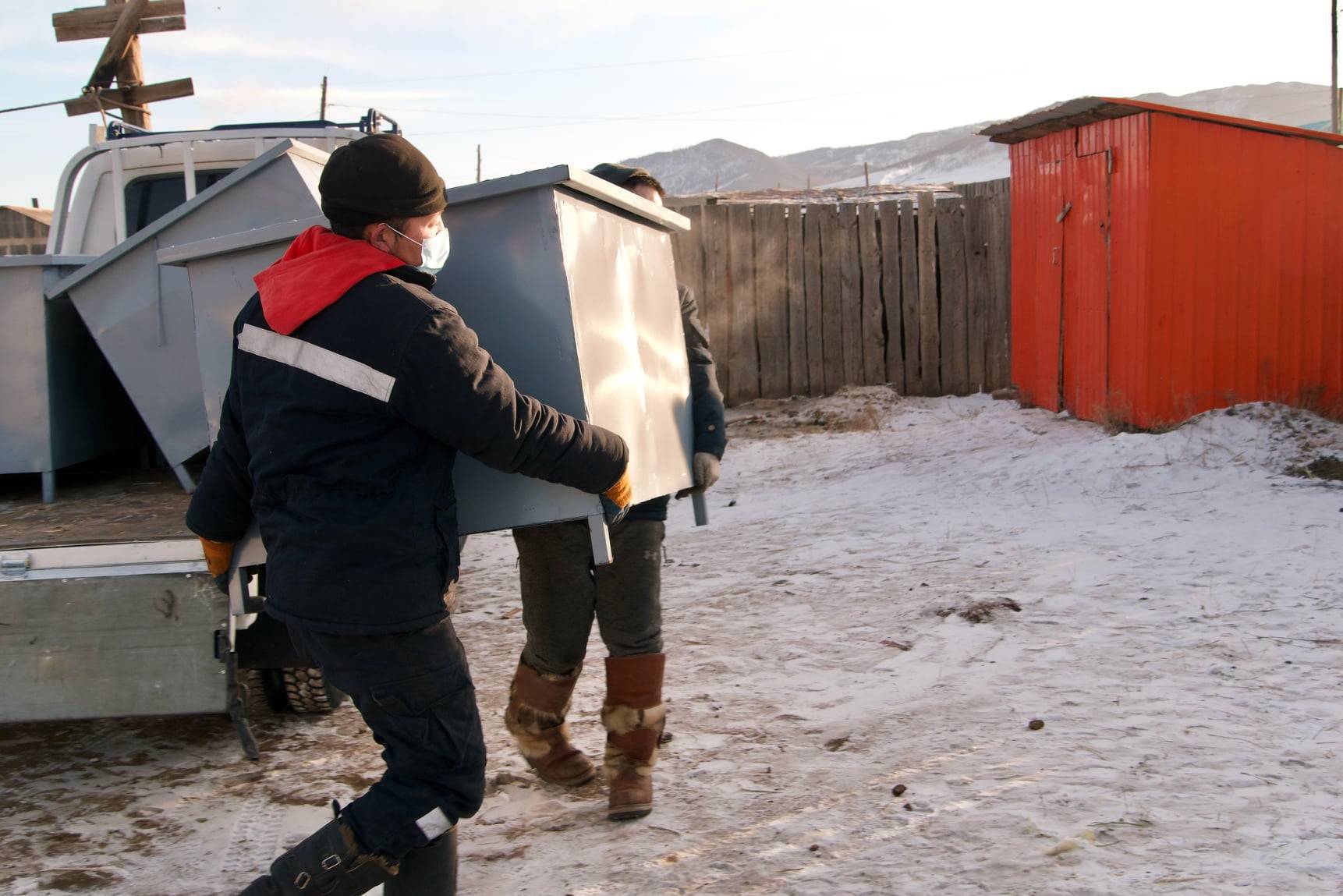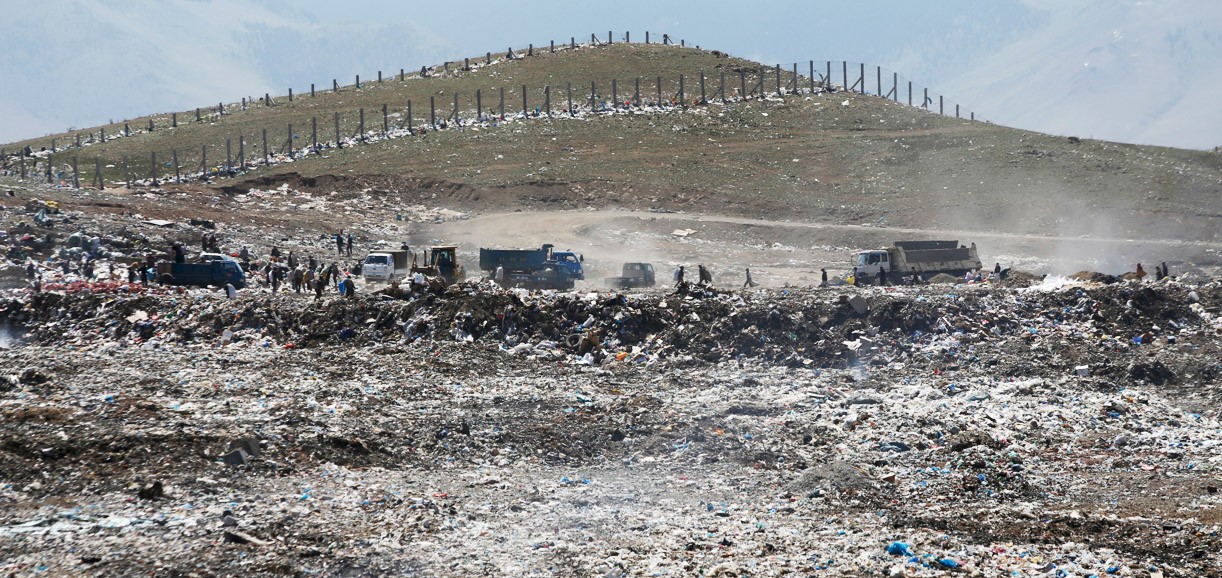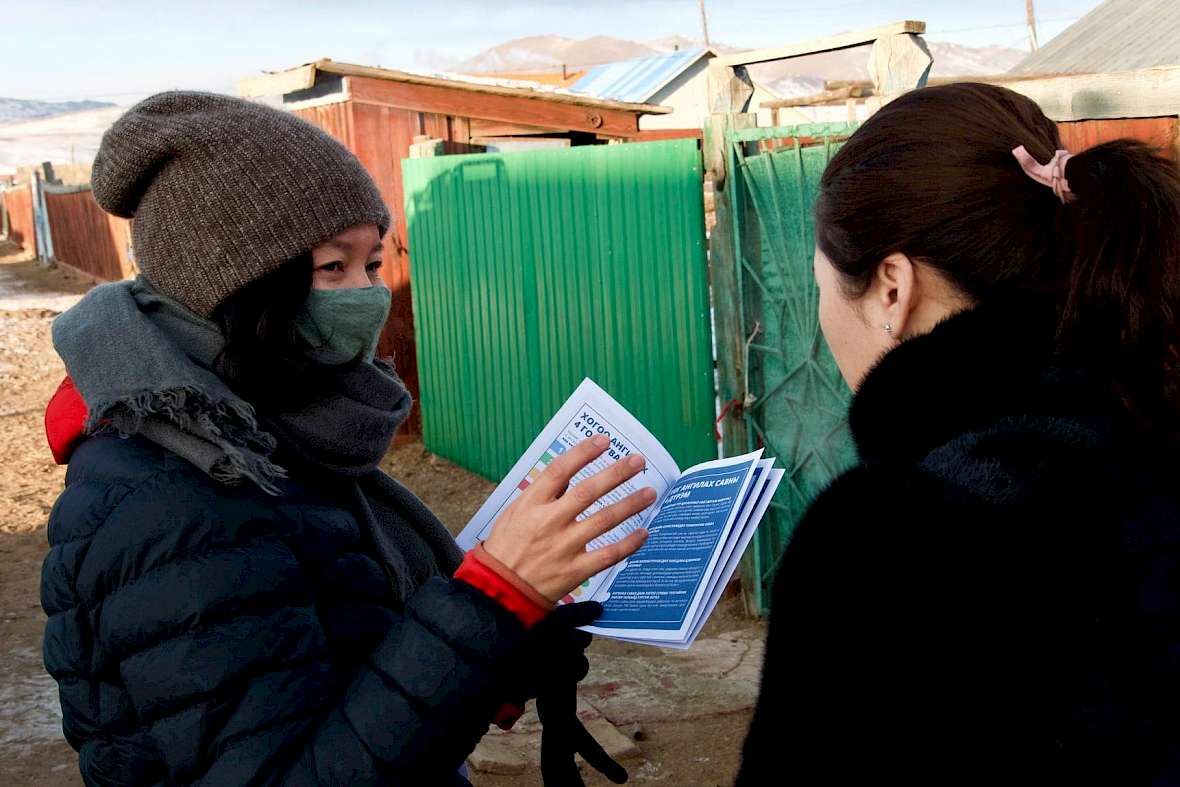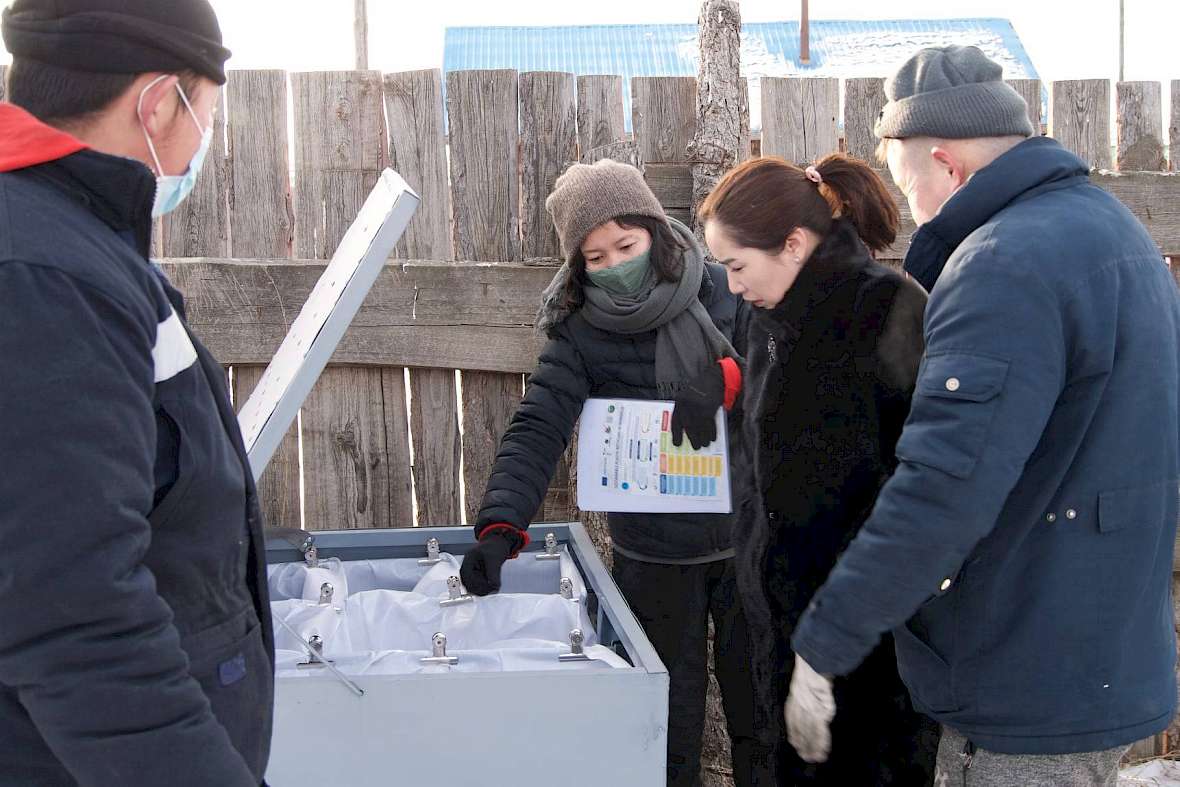
Waste management is a key issue in Mongolia due to the intense urbanisation, industrialisation and increasing consumption of packaged products over the last decade. Even though more than half of Mongolia’s population lives in the capital city of Ulaanbaatar, currently there is no consolidated waste management system for plastic waste (collection, segregation, transport and proper standards) in the city and effective recycling practices are missing. The majority of waste generated in urban and rural areas is disposed of and buried at dump sites without any proper treatment, while more than 60% of household waste can potentially be recycled or pre-processed for recycling (2019). Moreover, there is a limited number of recycling companies and almost none of the landfill sites in Mongolia meet all the environmental requirements set in the Law on Waste (2017). To respond to these challenges, the Government has undertaken a number of initiatives related to waste and the 3R approach (Reduce, Reuse, Recycle) at different levels. But, the issue of plastic waste is yet to be addressed effectively. Plastics are still being dumped or burned, becoming a particularly serious issue since they do not fully break down in soil and they release toxins when burnt.
In rural areas, waste management is usually worse than in the city. Sorting and recycling are practically non-existent in the soums (district which comprises a single village surrounded by steppes where nomadic herders live) and all wastes, from ordinary household waste to more toxic substances (paints, oils, coal ash, etc.), are indiscriminately dumped on the ground, in dumpsites located at the outskirts of the village. These dumps are widely open and unsecured, therefore, waste is systematically dispersed by the strong winds during Mongolia’s cold winters and even in spring. As there are no fences or protection systems around the dumpsites, health risks and impacts on the environment can be significant. In Khishig-Undur soum, for instance, there is no collection service and people’s common behaviour is to just drop their waste in the dumpsite. This has led to a tremendous extension of the dumpsite (over 100 ha). Most nomadic herders living outside the village are also not concerned of bringing their waste to the main dumpsite. They burn or abandon it out in the vast steppe (ecosum).
How SWITCH-Asia Sustainable Plastic Recycling project is addressing waste management and recycling challenges in Mongolia

The EU SWITCH-Asia funded project Sustainable Plastic Recycling in Mongolia (SPRIM) aims to address these issues through a four-year initiative being implemented in three locations at three administrative levels: Ulaanbaatar city, Bulgan aimag and Khishig-Undur soum. Implementing partners – Caritas Czech Republic in Mongolia, Environment and Security Center of Mongolia, Ecosoum, Mongolian Sustainable Development Bridge and T.G. Masaryk Water Research Institute are strongly committed to research, analyze, develop and address the imminent issues regarding waste management, in particular plastics recycling.
In Ulaanbaatar, the team aims to ensure better access to waste for recycling MSMEs and other actors in the waste management system, improving plastic waste collection, sorting and classification systems. The project is also invested in increasing the number of customers of plastic recycling MSMEs and making sure that the latter have access to advanced equipment and technologies. To ensure the sustainability of the project, numerous clusters and working groups will also be organised and collaborations among stakeholders forged.
At soum level, the project will bring a comprehensive solution to identified local challenges. An efficient pilot waste management system adapted to local needs will be put in place to enable the proper processing of waste, ultimately, reducing its impact on the environment. The project will also be invested in clean-up activities of the main open dumpsite. Overall objective is to make Khishig-Undur the first soum to sustainably strive towards zero waste.
Behaviour change activities will also be organised to tackle people’s unsustainable consumption practices. Through various pilot projects and activities, individuals, households, CSOs, MSMEs, public administration, supermarkets and businesses will be encouraged to take actions to switch to sustainable and environment-friendly lifestyles. In particular, children, students and youths will be equipped with the knowledge and skills to lead by example and become change makers.
Plastics are an important material in our economy, and modern daily life is unthinkable without them. At the same time, however, they can have serious downsides on the environment and health. The fundamental principle of SPRIM project activities is sustainability. The European Union always strives to support sustainable green development in Mongolia, said the Ambassador of the European Union to Mongolia, H.E. Mr Traian Hristea.
Our work during the COVID-19 pandemics


In Khishig-Undur soum, several awareness raising activities have already been conducted to mobilise the population and local authorities to join hands with the SWITCH-Asia Sustainable Plastic Recycling team.
Several trainings have been organised and delivered at school levels and in local administration offices. Awareness-raising leaflets and videos have also been produced and disseminated to educate and inspire people on how to properly sort and manage their waste.
Studies have been conducted and recommendations were shared with relevant authorities in order to adequately define and enforce a new and relevant Waste Management Master Plan.
Household waste sorting bins have been manufactured and have been already distributed to approximately 60% of local families. Support is being provided to schools and hospitals to define and implement their internal waste management scheme and adequate sorting equipment will also be installed.
This summer, a fully operational waste management facility, the cornerstone of the project at soum level, will be constructed. Plastic recycling machines will be acquired to locally process as much waste as possible. Partnerships with urban industries will also be developed to eliminate all recyclables that cannot be properly managed at soum level.
Work at the current open dumpsite has already begun. The objective is to reduce the size of the dumpsite by regrouping and piling up all spread out waste in a much more limited area. Once the operation is finished, pilled waste will be covered with clean material so that wind can no longer carry waste in the nearby steppe and river. Embankments and fences will secure the entire area.
At the country level, the project team has organised three online training sessions under the topic ‘Waste to Wealth’with external speakers and companies joining these events. One of the training sessions was conducted in English and was targeted to foreign citizens living and working in Mongolia who are eager to positively contribute to the environment through proper waste management practices. These trainings aimed to:
- Promote waste recycling and raise awareness on waste-related issues;
- Provide information on the impact of waste on the environment and the importance of waste sorting and recycling;
- Teach practical steps and tools for waste collection, sorting and recycling.
A Training and Learning Needs Assessment has also been conducted and will inform the development and implementation of future project activities.
Meetings with CSOs, NGOs and communities who will be involved in activities have also taken place to strengthen synergies and collaborations when working towards shared and common goals. The network of 40 NGOs and CSOs includes local organisations from remote areas of Mongolia such as Bayan-Ulgii, Uvurkhangai, Uvs, Selenge, Darkhan, Umnugobi and Dundgobi aimags. This is to ensure that diverse voices and points of view of underrepresented groups are also being taken into account throughout the project’s implementation.
The data collection for the preparation of suitable plastic waste collection schemes is ongoing and will soon bring valuable information and solutions.
What’s ahead of us?
Undeniably, the COVID-19 pandemics is having a great impact on all countries and sectors around the world. The amount of plastic waste has increased, which also means that pressure on nature and the environment has intensified. We strongly believe that there is a momentum to switch to more responsible and sustainable consumption and production patterns and we will continue in our efforts to make the environment in Mongolia cleaner and more resilient.


